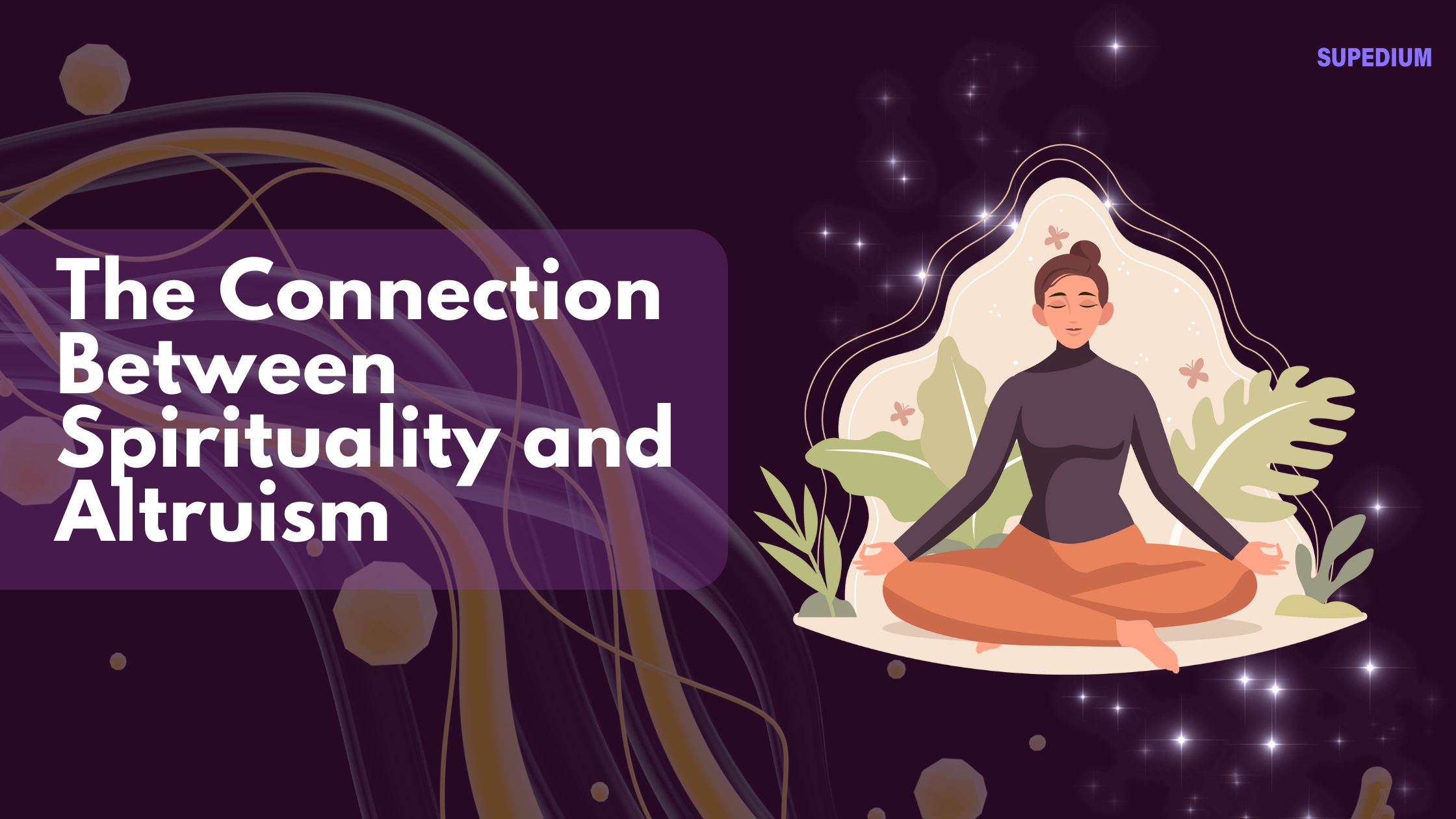Table of Contents
![]()
Introduction
Spirituality and altruism are concepts that have fascinated scholars, philosophers, and practitioners for centuries. While spirituality often refers to a personal quest for meaning and connection with something greater than oneself, altruism is characterized by selfless concern for the well-being of others. This article explores the intricate relationship between these two concepts, examining how spiritual beliefs and practices can influence altruistic behavior.
Theoretical Foundations
Historical Perspectives
Religious teachings across various traditions emphasize the importance of altruism. In Christianity, the concept of agape, or unconditional love, underscores the idea of selfless concern for others, as exemplified by Jesus Christ’s teachings and actions. Buddhism places significant emphasis on compassion (karuṇā) and selfless service, with the aim of alleviating suffering and promoting the well-being of all beings. Similarly, Hinduism advocates for seva (selfless service) and karma yoga, where actions are performed without attachment to their outcomes. In Islam, charity (zakat) and compassion are key tenets, reflecting a deep concern for social justice and the welfare of others.
Philosophically, Immanuel Kant’s moral imperatives suggest that moral actions are motivated by duty rather than personal gain. In contrast, utilitarianism advocates for actions that maximize overall happiness, often aligning with altruistic behavior. Existentialist perspectives also contribute to the discussion by emphasizing the search for meaning and the role of individual choice in fostering selflessness.
Psychological Perspectives
Spirituality and Moral Development
Psychological theories, such as those proposed by Lawrence Kohlberg, outline stages of moral development that are influenced by both cognitive and emotional factors. Spiritual beliefs can play a crucial role in shaping these moral values, providing a framework for understanding and practicing altruism. Spirituality often encourages individuals to transcend their self-interest and adopt a broader perspective that includes the welfare of others.
Empathy and Compassion
Empathy and compassion are psychological constructs closely linked to altruistic behavior. Research indicates that spirituality can enhance empathetic understanding and compassionate responses. Practices such as meditation and mindfulness, which are often integral to spiritual traditions, have been shown to increase levels of empathy and compassion. For example, loving-kindness meditation, a practice found in Buddhism, fosters feelings of goodwill towards oneself and others, thereby promoting altruistic behavior.
Altruism as a Spiritual Practice
Many spiritual practices explicitly promote altruism. Meditation and prayer, for instance, can cultivate a sense of interconnectedness and compassion. These practices often lead individuals to engage in acts of kindness and service, reflecting a deeper commitment to the well-being of others.
Sociocultural Perspectives
Community and Belonging
Spiritual communities often play a significant role in fostering altruistic behavior. These communities provide support systems and reinforce norms that encourage helping others. Examples can be found in various cultures and religious traditions, where communal activities and charitable work are integral to spiritual life. For instance, the Sikh tradition emphasizes community service (seva) as a fundamental aspect of spiritual practice.
Rituals and Social Norms
Rituals and social norms within spiritual communities frequently promote altruistic behavior. Charitable giving, volunteer work, and acts of kindness are often embedded in religious rituals and social expectations. These practices help reinforce the values of compassion and generosity, contributing to a culture of altruism.
Empirical Evidence
Research Studies
Empirical research has explored the connection between spirituality and altruism through various studies. For example, studies have found that individuals with strong spiritual or religious beliefs are more likely to engage in altruistic behaviors, such as volunteering and donating to charity. Surveys and experiments have also demonstrated that spiritual practices, such as meditation and prayer, can increase the likelihood of helping others.
Correlation vs. Causation
While empirical evidence supports a connection between spirituality and altruism, it is essential to differentiate between correlation and causation. Research often shows a positive correlation between spiritual beliefs and altruistic behavior, but establishing causation can be challenging. Factors such as individual differences, cultural contexts, and the nature of spiritual practices can influence the outcomes.
Case Studies
Individual Examples
Notable figures who have demonstrated the connection between spirituality and altruism include Mother Teresa and the Dalai Lama. Mother Teresa’s life and work were deeply rooted in her Catholic faith, and her dedication to helping the poor and sick exemplifies the intersection of spirituality and altruism. Similarly, the Dalai Lama’s teachings on compassion and altruism reflect his Buddhist beliefs and have inspired countless individuals to engage in acts of kindness.
Organizational Examples
Spiritual organizations often engage in social welfare and charitable activities. For instance, organizations such as the Red Cross and various religious charities incorporate spiritual principles into their missions. These organizations demonstrate how spiritual teachings can translate into tangible efforts to address social issues and improve the lives of others.
Criticisms and Counterarguments
Criticisms of the Spirituality-Altruism Link
Some critics argue that altruistic acts motivated by spiritual beliefs may not be entirely selfless. They suggest that spiritual practices could be used for self-aggrandizement or personal gain. Additionally, there is skepticism about whether spirituality genuinely fosters altruism or if other factors, such as social pressure, play a more significant role.
Counterarguments
Rebuttals to these criticisms emphasize the genuine nature of altruistic acts rooted in spirituality. Research supports the idea that spiritual practices can lead to authentic altruistic behavior. Furthermore, many individuals report that their spiritual beliefs and practices have profoundly influenced their commitment to helping others, reinforcing the connection between spirituality and altruism.
Implications and Applications
Practical Implications for Individuals
Individuals can incorporate spirituality into their altruistic efforts by embracing practices that foster compassion and empathy. Spiritual teachings and rituals can provide motivation and guidance for engaging in acts of kindness and service. Personal growth and development are often enhanced through such practices, leading to a more fulfilling and meaningful life.
Implications for Organizations
Spiritual organizations can enhance their altruistic impact by integrating spiritual principles into their missions and activities. Collaborations between spiritual and secular organizations can also amplify their efforts to address social challenges. By aligning their goals with spiritual values, organizations can contribute to a more compassionate and equitable society.
Conclusion
The connection between spirituality and altruism is complex and multifaceted, encompassing historical, psychological, sociocultural, and empirical dimensions. Spiritual beliefs and practices can profoundly influence altruistic behavior, fostering empathy, compassion, and a commitment to the well-being of others. While criticisms and counterarguments exist, the evidence supports the idea that spirituality and altruism are deeply intertwined. Further research and exploration of this relationship can provide valuable insights into how spiritual practices can continue to promote acts of kindness and social good.
Share This





Be the first to comment